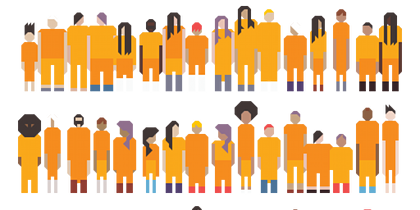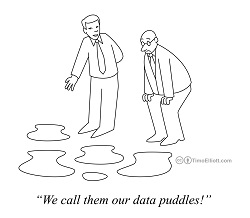DIGITAL CITIZEN

Defining Rights

Digital citizenship is the ability to participate in society online, to promote social inclusion for individuals. It requires the melding of information stored in data lakes and made available to user defined communities.
The Internet has created a universal, reliable and friction-free plumbing system for finding and exchanging information. This web of connections to people and data sources has reduced the cost of data access but is hampered by the challenge of bringing information to the user. Many resources exist as data lakes that require multiple touchpoints to make them useful. Whether the data is from commercial or governmental sources, the problem is the same.
Ambitna, a healthcare startup is taking the first challenge by providing the pharmaceutical industry representative candidates for cancer clinical trials. The second challenge is providing an information platform to support analysis for population determinants of health, not just in cancer. As part of their effort, the Ambitna technology focuses on how communities are formed to securely exchange information using the current evolution of the Internet – Peer to Peer (P2P).

But in countries like the US, UK, Germany and in Asia, the consolidation of data at the fingertips of a digital citizen is not yet realized. China may be the first example of the future of what entails a digital citizen and how they engage and are tracked. Part of the slow pace is due to nascent standards for data privacy, access rights and governance. Since the Internet is an untrusted resource, creating data profiles that a digital citizen can monitor, and control is a key focus among nations.
The dark side of digital citizenship is that it tends to favor individuals that have the means to use the digital highway, something that may not be economically feasible for poorer segments of the population, or minority segments that have limited access due to location or cost.
Jus algoritmi – the right of the algorithm – is a term created by John Cheney-Lippold to describe digital citizenship as produced by the surveillance state, whose primary intent is control through identification and categorization to make judgements, using software such as AI.
Algorithmic Citizenship is a form of citizenship which is not assigned at birth, or through complex legal documents, through data, constantly recalculated. As in a kaleidoscope, it creates many sub-citizenships, counting and re-weighing them over time. This is a ‘new algorithmic identity’.

Algorithmic identities are determined by non-human, computer enabled systems that are candidates for misuse and may be in conflict with the legal rights a citizen may have. But the direction is clear. Our rights to democratic governance, equal access to resources, representation and equal treatment, are becoming dependent on our digital profiles and who has access to them. More important, who owns this information and controls its distribution.
Information has explicit public or private rights. Your legal profiles generally are public as they provide a value to government and commercial uses. Marriage licenses, commercial licenses, educational degrees, drive licenses, real estate ownership are classic examples of public data. Some information is legislated as private even though it is used for multiple purposes. Your health record by law are considered private in that you have the right to the information, regardless of who created it. But when it comes to your electronic activities such as use of online services, rights become murky.
For instance, your physical location tracking using a mobile app such as Google’s MAPS enables you to navigate given where you want to go. This data persists long after you completed a journey. Does Google have the right to use it for other purposes without your consent? These are the new battlegrounds for privacy for the digital citizen.

Ambitna recognizes this challenge as the largest impediment to a digital health record in control of the citizen. This challenge parallels the privacy issue of granting access to a third party or even notifying the individual that information was passed between other parties. Through its platform operated as a secure P2P network of devices, cloud services and users, Ambitna provides an advanced solution for analytics that addresses the data silo and lake challenge.
For cancer clinical trial management, the data objects are the target area for extracting candidates that match the inclusion and exclusion criteria for available trials. Through its Federated Data Network (FDN), Ambitna can join the objects across different data sources without resorting to building a combined object. For population determinants of health, Ambitna uses the same method as in clinical trials but creates data objects centered on specific use cases, not just for cancer. The FDN connects objects that share attributes to create navigable pathways between data lakes and silos. What’s more, the objects are SQL compliant making them compatible with statistical and machine learning software at a faster and computationally cost efficient alternative used today.